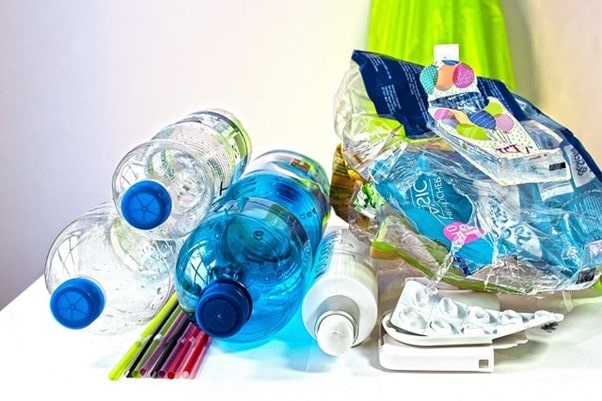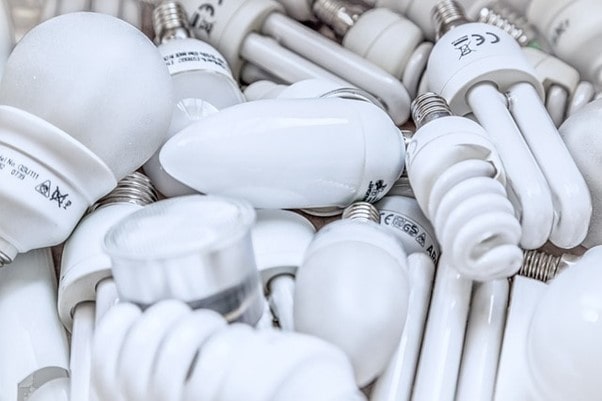
Waste disposal best practices contribute to reducing the amount of waste that is currently produced worldwide. Greenhouse gas emissions and waste can be effectively reduced by using sustainable waste management techniques.
Waste management should be done correctly. The problem is that the process can be laborious and challenging, especially if you try to do it alone.
Additionally, a specialised waste disposal method is necessary for numerous waste materials. For example, safe waste management techniques are necessary for hazardous wastes. This might also differ when dealing with solid waste versus liquid waste.
To improve their waste disposal practices, people and organisations can embrace a variety of practices to manage waste.
This entails doing as much as you can to reduce, reuse, recycle, and recover. In waste management, it’s generally a good idea to minimise the amount of waste that is dumped in landfills.
Following our suggestions can help to create a better, more environmentally friendly world. This safeguards future generations from the worries of climate change and greenhouse gases.
Prevent the Production of Waste
The best strategy for reducing waste is prevention. But what does this actually mean? If it were that easy, then surely everyone would be doing it.
This points to a big obstacle that has to be overcome.
Managing the total amount of waste generated is part of waste prevention. Reducing the number of products created during the product creation process will help prevent them from ending up in landfills.
Before a product is made, waste should be eliminated using clever manufacturing techniques.
However, more action is still possible. Going paperless allows businesses and educational institutions to use less paper. This will reduce the quantity of waste produced and the cost of disposal.
Even though this would require a big change in the system, it would
While this would entail a significant systemic shift, it would help prevent waste from being formed in the first place.
Lower the Total Amount of Waste
This strategy, like waste prevention, focuses on reducing total waste generation across various industries.
On the other hand, a lot of companies have started using reduction strategies. For example, stores may decide to stop selling plastic shopping bags or promote the use of reusable bags.
This lessens the need for single-use plastic bags, which take a millennium to decompose. Additionally, this waste reduction strategy reduces greenhouse gas emissions.
Managers and owners of businesses should think about how much waste they can cut out of their current operations. To do this, waste audits are a fantastic tool.
Reuse when possible.
A large portion of the garbage that ends up in landfills doesn’t have to. A lot of products last far longer than most people realise. Practices for sustainable waste management aim to prolong these life cycles.
Let’s take another look at single-use plastic bags. Consider turning them into something helpful rather than discarding them. Garden waste can be reused in similarly creative ways.
Here, creativity is crucial. Putting yourself to the test by coming up with more creative ways to repurpose a product before throwing it away can be entertaining.
However, not all waste can be safely recycled. Reusing waste materials such as industrial waste, hazardous gases, medical waste, and other potentially dangerous waste should only be done after consulting a waste management company.
Reusing products reduces the amount of waste the world produces each year and helps prevent perfectly usable items from rotting in landfills.
Recycling
What comes to mind for most people when asked about better waste disposal techniques is recycling. It’s so good that it’s become a catchphrase for sustainability.
Regarding the advantages of recycling, there isn’t much more to say that most people don’t already know. There are numerous established advantages for the environment from recycling services and programs. Local recycling infrastructure and other recycling facilities exist in most towns and cities across Australia and offer an alternative to direct landfill disposal.
By giving a product a new lease on life, it keeps it out of landfills. It also better utilises local recycling infrastructure.
Recycled materials contribute to a decrease in waste overall. It is a waste management strategy that businesses ought to think about. It reduces the environmental impact of an industry, demonstrates that your company uses sustainable waste management techniques, may result in financial assistance from local governments, and inspires staff members to think about their personal environmental impact.
Resource Recovery
Resource recovery attempts to take the waste and try to do something new with it instead of throwing it onto a dumpsite.
Once more, it takes a little ingenuity, but the results are well worth it. It’s interesting to note that it offers potential business ventures for budding entrepreneurs. Why not figure out how to turn used cell phones into fuel? You could become wealthy.
Waste generated by outdated electronic devices is known as e-waste. Many people are unaware that it may contain valuable organic waste and other raw materials.
Not only does recovery give products a new purpose, but it is also very effective. It also illustrates how different systems can be made better.
But before you dive into waste bins looking for valuable waste material scraps, consider human health and safety. Wearing all required personal protective equipment will help you avoid hurting yourself in the event of an emergency.

Proper Disposal Is Essential
We’ve covered a number of ideal scenarios in which the waste product is kept away from the landfill. But things aren’t always like this. Certain products are meant for them, especially those that contain hazardous chemicals.
This does not imply that you are not contributing in any way. One of the most important parts of waste management is proper disposal of waste.
Recyclable and hazardous waste shouldn’t go in the same trash can. Separate facilities for waste storage are part of waste management.
Make sure you properly dispose of any waste. Global waste management systems are now more efficient overall as a result of this.
Remain knowledgeable
The idea that the waste disposal industry is mysterious and difficult is untrue. In actuality, the majority of professionals in the field would be delighted to impart their wisdom.
This is due to the fact that waste disposal education is crucial. One aspect is knowing where to dispose of different kinds of waste.
Additionally, you ought to be aware of the various kinds of hazardous waste that your business generates. Maintaining waste separation is a component of waste reduction.
Assume that everyone is aware of the complete waste management procedure. If that is the case, people will be more likely to adhere to best practices for disposing of waste because they can clearly see the overall advantages of doing so.
Promote Waste Management Companies
Implementing ethical waste disposal techniques across Australia’s waste management systems will help to build a greener and more sustainable future.
In a similar vein, don’t hesitate to hold local business owners responsible.
Encourage the local cafe that sells single-use coffee cups to switch to more environmentally friendly waste management techniques.
Everyone benefits from efficient waste management systems, so companies should consider factors other than just their bottom line. General management ought to include effective waste management.
If you own a business, you should think about using specialised recycling and waste management services. To help you better understand your waste management shortcomings, they can perform a waste audit.
Reduce Food Wastage
In a world where famine and hunger are rampant, Australia alone generates more than 7.6 million tonnes of food waste per year.
It is best to minimise food waste as much as possible. This entails cutting back on the quantity of cooked food and figuring out how to keep perfectly good food from going bad.
Why not provide the homeless with free food if you own a restaurant? By doing this, you’ll reduce food waste and gain favour with the local population.
Make Efficiency Your Own
Ultimately, you must use the waste disposal techniques that are most effective for you. Many people rely on infrastructure like municipal solid waste sites because it is easy and not because it represents optimal efficiency.
While these ought to adhere to the aforementioned best practices, it is equally naive to think that every system will function identically in every circumstance.
It’s critical to identify a system that functions well for your family or business. Being creative is crucial because experimenting with different approaches will help you figure out what works best.
Closing thoughts
Best practices for disposing of waste are essential to waste management. To build a better, more sustainable world, you must consider how you dispose of waste from your home or place of business.
Trial and error is a great way to create your own waste disposal best practices.
There are, nevertheless, some short cuts, which is where Evoro, a waste management company, comes in. To assist you in understanding more about what functions well and poorly in your waste disposal system, they can perform tasks such as a waste audit.
